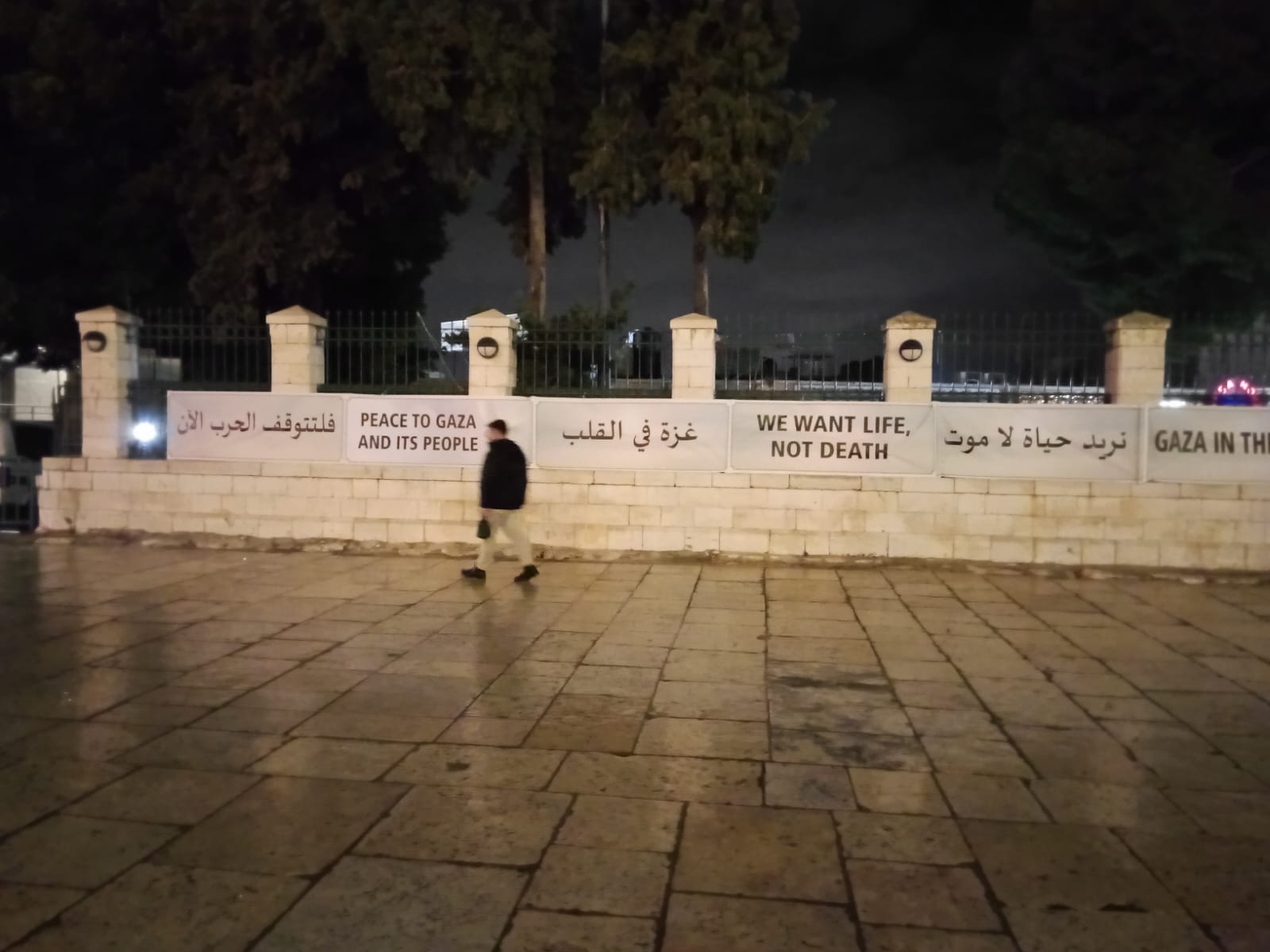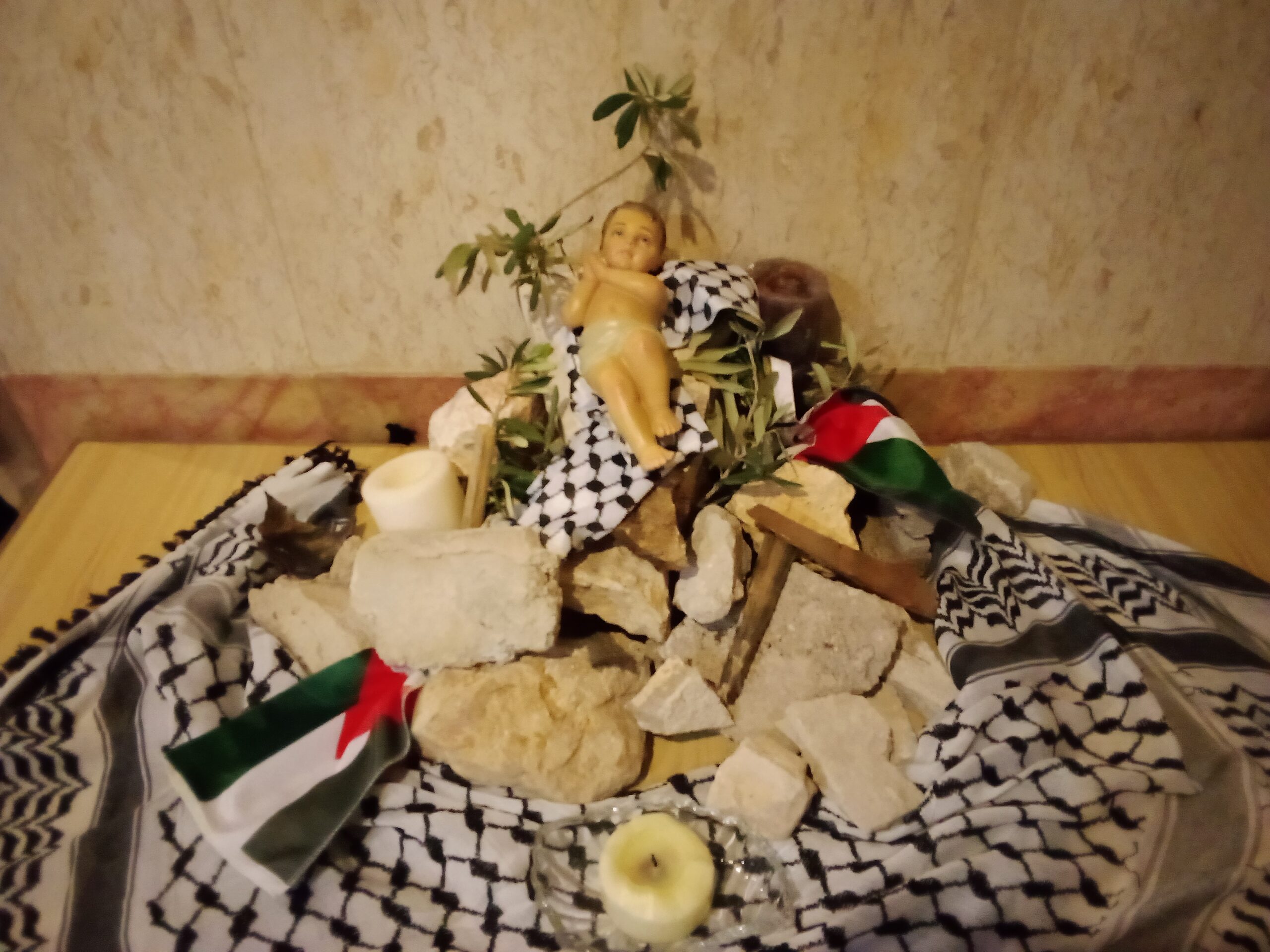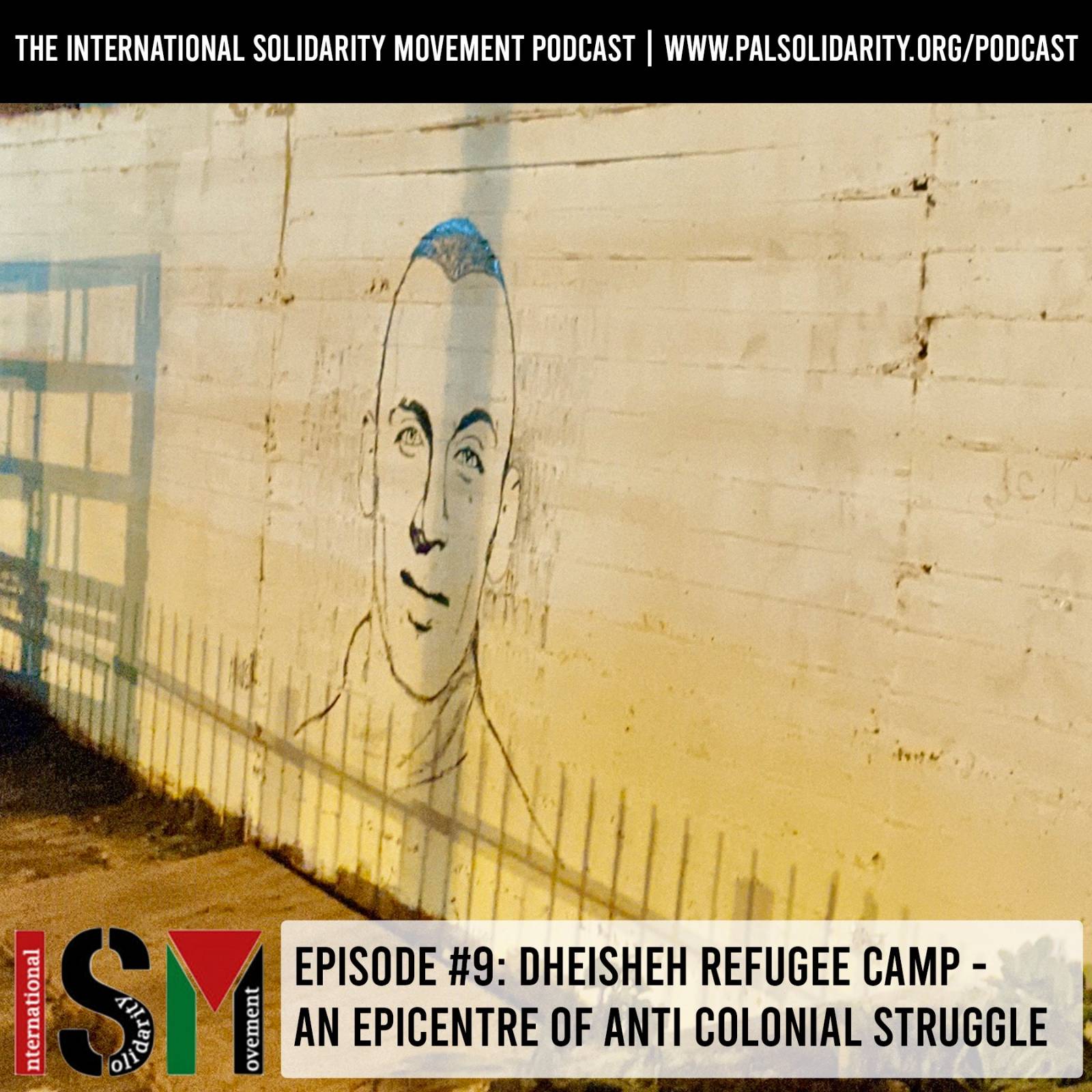Tag: Bethlehem
-

Impending Famine, Infectious Disease and Starvation. It is Christmas in Palestine.
Gaza / Occupied West Bank 12/24/2023 Hundreds of thousands of Palestinian children in Gaza are at risk of famine and preventable death from disease as the world’s observant retreat into family and faith to mark the birth of another Palestinian child. In a lightless, treeless Bethlehem, haunting displays capture the specter of a…
-

Candles in the Dark
It is nearing Christmas time in Bethlehem. And there is room at the inn this time. A family from Gaza had to go to a far away hospital for their child’s illness. Then October 7th occurred, and then the genocide.
-

International Solidarity Movement Podcast episode 9: Dheisheh Refugee Camp – an epicentre of anticolonial resistance
In this episode Tom and Hazel speak to Sireen Khudairy, who is a resident of Dheisheh refugee camp in Bethlehem. For many years, Dheisheh has been a centre of determined resistance against the occupation. We spoke to Sireen in December 2022. And she told us about life and resistance in Dheisheh, and also in the…
